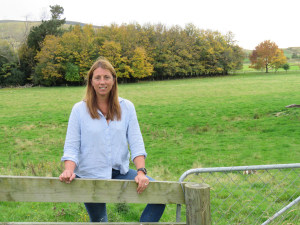RMA Reform: B+LNZ Says Draft Legislation Misses Government’s Intent
Beef + Lamb NZ (B+LNZ) is calling for significant changes to the Government’s reforms to the Resource Management Act (RMA).
 Beef + Lamb NZ chair Kate Acland has written to the UK's Secretary of State for Environment, Food and Rural Affairs regarding comments he made last week.
Beef + Lamb NZ chair Kate Acland has written to the UK's Secretary of State for Environment, Food and Rural Affairs regarding comments he made last week.
Beef + Lamb New Zealand (B+LNZ) says recent criticism from the UK’s Secretary of State for Environment, Food and Rural Affairs regarding New Zealand’s animal welfare standards are unfounded.
Last week, in an opinion piece in The Telegraph defending the UK Government’s controversial inheritance tax on farms, Steve Reed claimed the United Kingdom-New Zealand free trade agreement (FTA) signed in 2022 allowed for the import of meat products which were “produced to welfare and environmental standards so low they would be illegal in the UK”.
The claim has been roundly refuted by B+LNZ’s UK-based regional manager, Alex Gowen, who says the industry good body is taking the criticism seriously, reaching out directly to the UK Government, farmer organisations, and the UK media to address the claims.
In addressing the issue, he says, B+LNZ is also enlisting support from the New Zealand Government.
“It is simply not good enough,” says Gowen.
“We are calling for UK politicians to focus on facts, not misinformation that undermines generations of trust between British and New Zealand farmers,” he says.
“We value collaboration over division,” he adds. “If we were to compete, let it be on the rugby field, not through political grandstanding.”
B+LNZ chair Kate Acland has also written to Reed, saying that the statement he made was categorically false and undermined the reputation of New Zealand farmers.
She points out that animal welfare and sustainability were pivotal during the FTA negotiations, adding that the inclusion of a standalone chapter on animal welfare within the FTA was the first of its kind.
She notes that while farming systems may differ from those in the UK, this did not equate to lower animal welfare standards.
“Our robust regulatory framework, bolstered by comprehensive assurance schemes, ensures exceptional animal welfare by allowing livestock to live as naturally as possible,” she writes.
She has invited Reed to New Zealand to observe the country’s farming systems first-hand.
The 5+ A Day Charitable Trust has launched a collection of affordable recipes designed to turn everyday vegetables into seasonal stars.
Jane Mellsopp has been confirmed as the new Government Appointee to the New Zealand Meat Board (NZMB).
To celebrate the tenth anniversary of its annual Good Deeds competition, Rabobank will give away $100,000 to improve rural community hubs, schools, clubrooms, and marae across New Zealand.
Agricultural and veterinary product supplier Shoof International has appointed Michaela Dumper as its new chief executive.
Federated Farmers is celebrating following the Government's announcement that young farmers will be able to use their KiwiSaver funds to buy their first home or farm.
The Meat Industry Association of New Zealand (MIA) today announced that Chief Executive Officer Sirma Karapeeva has resigned from the role.

OPINION: A mate of yours truly reckons rural Manawatu families are the latest to suffer under what he calls the…
OPINION: If old Winston Peters thinks building trade relations with new nations, such as India, isn't a necessary investment in…